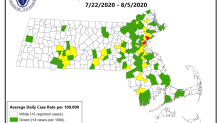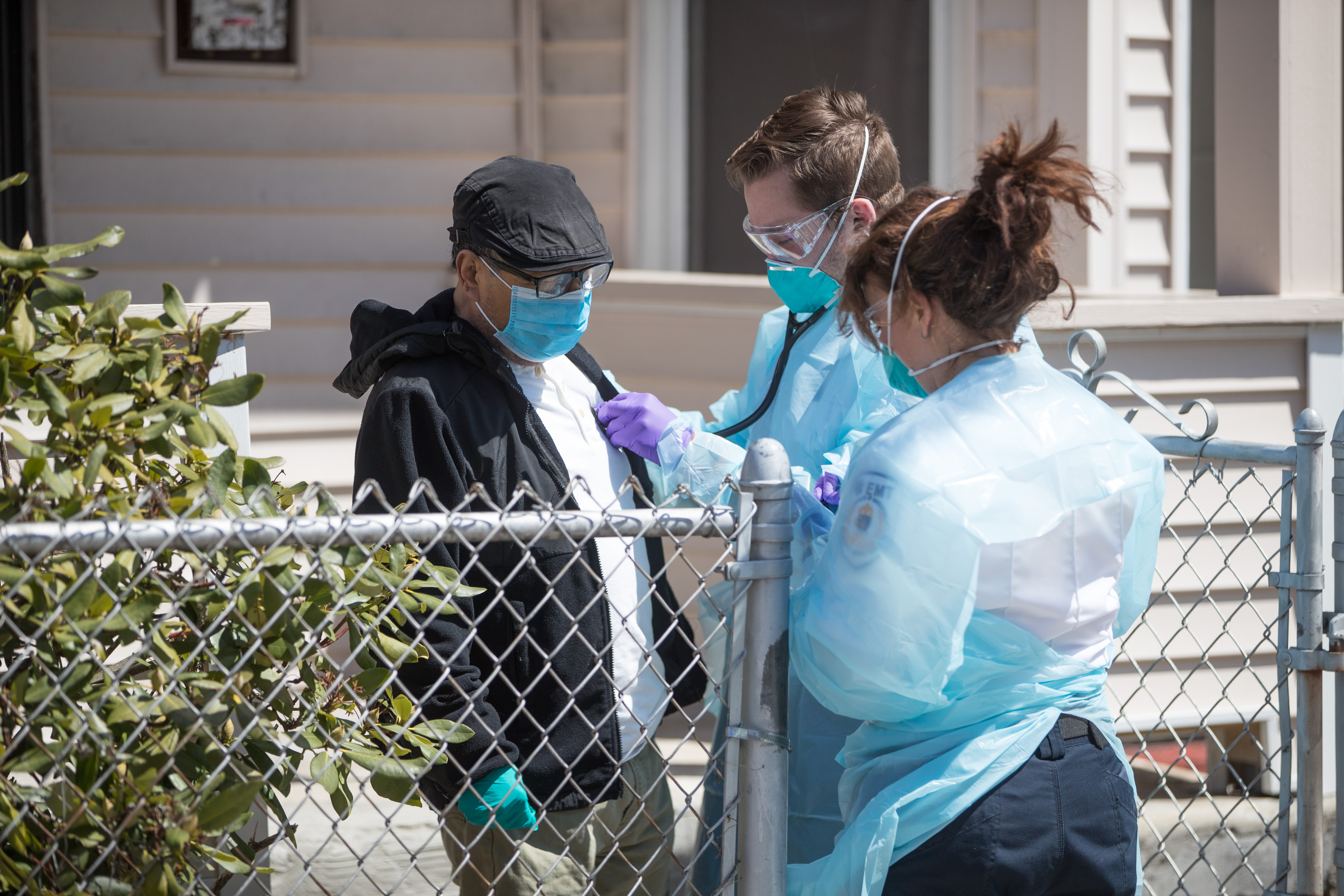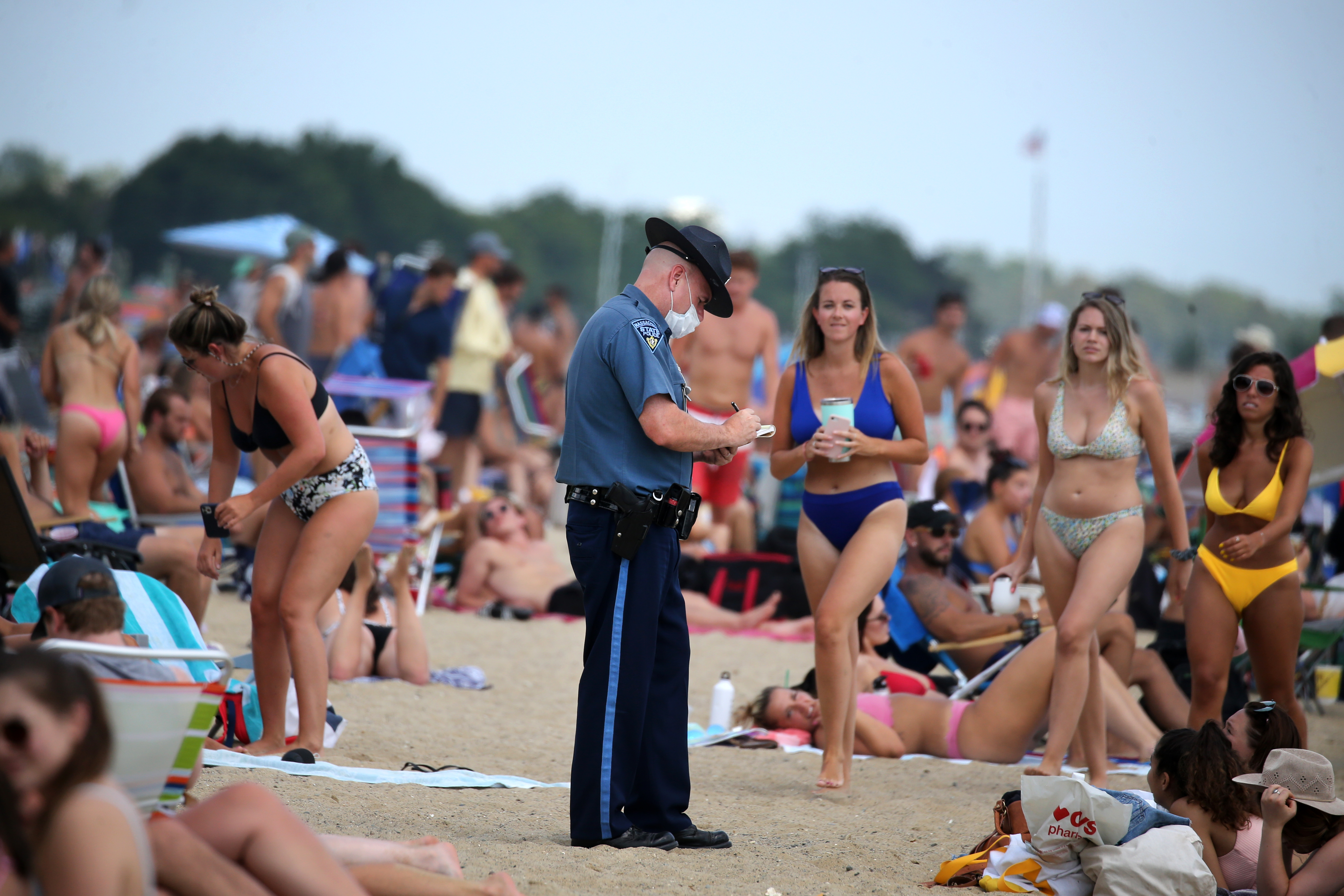Massachusetts officials have urged residents for months to continue to wear masks outside when unable to practice social distancing.
But with the state seeing an uptick in cases, they're taking their guidance a step further, urging people in hard-hit communities to wear masks at home if they are living with someone with underlying health conditions.
“Residents of these higher risk communities should wear a mask at all times, particularly when you cannot keep six feet away from others,” said Marylou Sudders, secretary of health and human services, during a press briefing Tuesday.
“You should also consider wearing a face covering inside your home if an older individual or someone with compromised medical condition is part of your immediate household.”
During the same press conference, Gov. Charlie Baker identified four high risk Massachusetts cities and towns that will be the focus of his new COVID Enforcement and Intervention Team.
Chelsea, Everett, Lynn and Revere are included in the high risk category, meaning they have over eight cases per 100,000 residents.
According to Boston.com, Baker’s office confirmed that Sudders was referring only to residents living in the highest-risk category.
Twenty-nine other communities, including Auburn, Belchertown, Boston, Brockton, Charlton, Chicopee, Fall River, Framingham, Georgetown, Granby, Holyoke, Hull, Lawrence, Longmeadow, Malden, Marlborough, Maynard, Middleton, Northampton, Peabody, Salem, Saugus, Springfield, Quincy, Randolph, Taunton, Winthrop Worcester, Wrentham, are in the moderate risk category, meaning they have between four and eight cases per 100,000.

While Massachusetts has seen an overall decrease in COVID-19 cases since May, there has been an uptick in some communities in recent weeks.
The state said it plans to offer these high and moderate risk municipalities assistance with testing, contact tracing and public awareness campaigns, Baker said. The effort is part of a new initiative to better inform residents about the spread of the coronavirus in their communities and the cities and towns where they work, shop or travel to on a regular basis so they can make informed decisions about precautions to limit infections.
Get top local stories in Boston delivered to you every morning. Sign up for NBC Boston's News Headlines newsletter.
Additional state support will include targeted intervention and inspections, enforcement, including fines, cease and desist orders for businesses and organizations in violation of COVID-19 orders and increased access to federal funds.
"People need to step up and be aware of the level of spread in each community, especially in your own area, and be vigilant," the governor said.
The administration said it will begin publishing weekly data showing town-by-town infections rates and assigning every community a color based on the level of infection and spread detected by testing.
The other 318 cities and towns in the state fall into the green (fewer than four cases per 100,000) or white (fewer than five cases in the past 14 days) categories and are considered lower risk.
"Regardless of where your community sits, COVID is not going away," Baker said. "Your actions, no matter where you live or work, will determine in many respects whether and how this virus spreads."
Baker said parks, playgrounds and some businesses could be restricted or shut down in moderate- or high-risk communities if they have been shown to be contributors to higher infection rates. Local officials in trouble spots, Baker said, identified social gatherings without masks as their biggest challenge this summer.
"Over and over again what these folks said is there are too many informal gatherings, too many people at them and nobody's wearing face coverings," the governor said. "The idea is not to issue fines. We want to make sure they're abiding by the gathering rules and will be sending people home if they're not... No one's looking to arrest people and write citations unless people literally refuse to play by the rules."
State House News Service contributed to this report.



